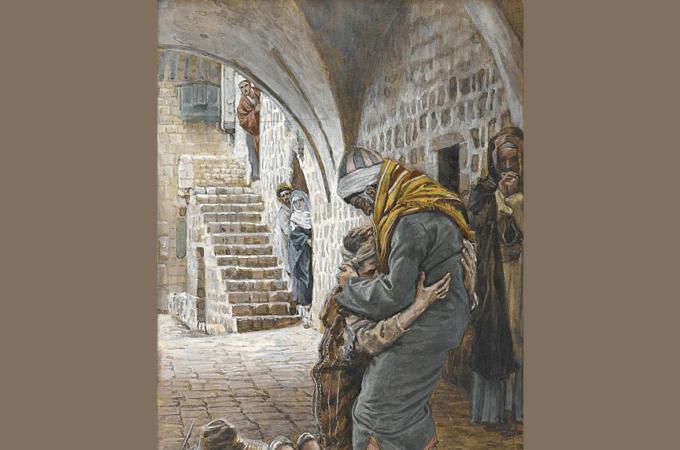As we forgive
We recently added the papers of Father Richard John Neuhaus to our university library's collection of important figures in American Catholic history. Among them are a number of reviews of his book "Death on a Friday Afternoon," a meditation on the last words of Jesus.
Christ's first prayer after being nailed to the cross was a plea for forgiveness: "Father, forgive them, they know not what they do." In a way, it's a summary of what Christians believe.
Jesus poured out his blood, as we say at the consecration of the Mass, for the forgiveness of sins. His words from the cross seem directed toward the Roman soldiers and political leaders who crucified him. But he had equally in mind the rest of us "who, though sinners, hope in (God's) abundant mercies."
Father Neuhaus talks in his book about how wonderful it is for us that God is so forgiving. He notes how, at Good Friday's service of the Seven Last Words, we often read St. Luke's Gospel of the prodigal son. That's a wonderful story of how a father can love and forgive the most wayward child. But it doesn't approach the reality of the events that won our salvation during Holy Week.
There is enough in this to occupy our thoughts this Lent. I have found my mind wandering off in a different direction, though, at right angles to Father Neuhaus. Here is what I've been thinking.
The Our Father, which Jesus taught us to pray, is a series of seven petitions. Three are about the Father's glory (thy name, thy kingdom, thy will). Four are about what we want (our daily bread, forgiveness of sins, liberation from temptation and from evil).
There is only one thing we offer in return. We ask God to forgive us "as we forgive those who trespass against us."
How surprising. The one thing Jesus advises us to do, if we want God's forgiveness, is to practice it ourselves. Forgiveness. Not piety or temperance; not humility, chastity or generosity.
How does this junior varsity virtue come to be singled out for special mention in the Lord's Prayer? What's so great about forgiveness?
Our culture, focused as it is on the self, encourages forgiveness because it's good for the forgiver.
Maya Angelou wrote that "it's one of the greatest gifts you can give yourself, to forgive."
The Mayo Clinic explains why on its adult health website. "Forgiveness," it says, "can lead to: healthier relationships; improved mental health; less anxiety, stress and hostility; lower blood pressure; fewer symptoms of depression; a stronger immune system; improved heart health; (and) improved self-esteem."
I doubt Jesus had improved heart health and self-esteem in mind when he asked his Father to forgive his executioners. He surely knew his plea would do little to reduce the anxiety and stress of crucifixion.
Jesus had us in mind, not himself. We all were there when they crucified Our Lord. We all pounded the nails. And he asked that we be forgiven. That is the act of our redemption.
"Such a way of love," Father Neuhaus said, "violates our sense of justice." It's not what we deserve. But it's what we mean when we say that God is love.
So it should be with our own forgiving of others. It, too, violates our own rigid sense of justice. We have a right to nurse grudges against those who insult and cheat us, we tell ourselves -- at least until the score is settled. Forgiveness restores others to our good graces, even though their accounts remain unbalanced.
But unless we can do that, we won't really understand what Jesus did for us on Good Friday. We'll try to take his forgiveness, and withhold our own, and it will be all about us. We should forgive our trespassers as God forgives us.
- Garvey is president of The Catholic University of America in Washington, D.C.



















